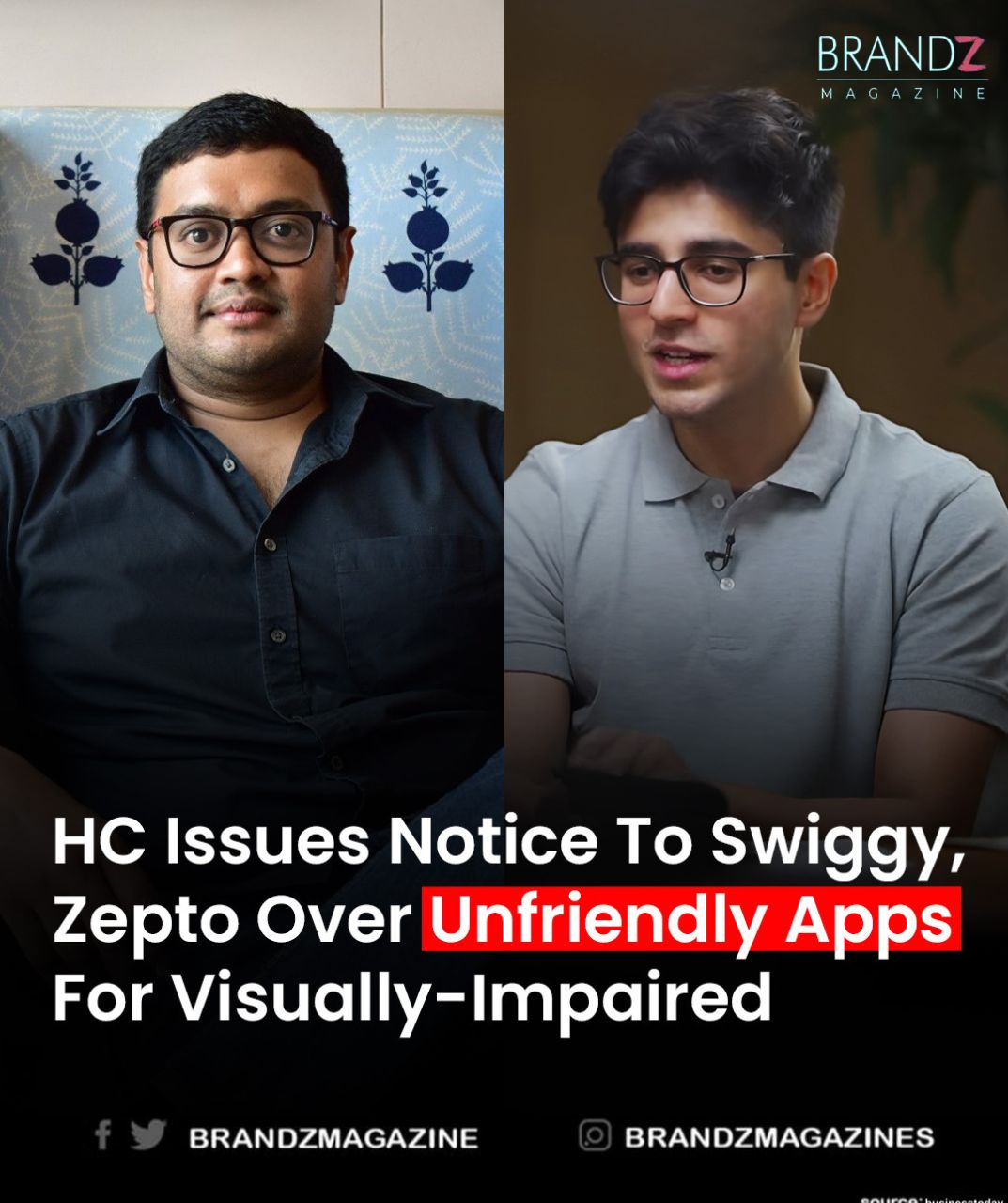
In a significant development for digital inclusivity in India, the Delhi High Court has issued notices to food delivery platform Swiggy and quick commerce player Zepto following a petition that flagged their mobile apps as inaccessible for visually-impaired users. The court’s intervention came during a hearing on a plea filed by Mission Accessibility, an NGO advocating for the rights of persons with disabilities.
The petition, spearheaded by renowned accessibility advocate Amar Jain, highlights critical shortcomings in the design of both Swiggy and Zepto’s applications. It argues that these platforms are not compatible with screen-reader software, making it difficult—or in some cases, impossible—for visually-impaired users to navigate, browse, or place orders independently.
Table of Contents
ToggleThe plea invokes the Rights of Persons with Disabilities (RPwD) Act, 2016, which mandates that all public digital interfaces, including apps and websites, be fully accessible to people with disabilities. Section 42 of the RPwD Act specifically requires service providers to make their platforms accessible by following international accessibility standards.
Despite these clear legal obligations, the petition claims that both Swiggy and Zepto have failed to take adequate steps toward making their platforms screen-reader friendly, thus excluding a significant segment of the population from accessing essential services like food delivery and grocery shopping.
Justice Sachin Datta, while hearing the matter, directed Swiggy, Zepto, and the Ministry of Electronics and Information Technology (MeitY) to file their responses within four weeks. The court emphasized the importance of digital accessibility as an integral part of inclusive development and digital empowerment.
The High Court’s notice is a step toward enforcing digital rights for persons with disabilities in India, ensuring tech platforms are held accountable for equitable user experiences.
This case is a wake-up call for India’s booming foodtech and quick commerce industries, which have seen exponential growth, especially after the COVID-19 pandemic. With millions of users relying on apps for daily essentials, it’s crucial that platforms are designed with inclusivity in mind.
Beyond legal compliance, accessible design also makes good business sense. It expands user reach, enhances customer satisfaction, and strengthens brand reputation. The lack of accessibility not only limits market potential but also reflects poorly on companies in an era of increasing digital responsibility.
Should the Delhi HC find merit in the petition’s claims, Swiggy and Zepto may be required to undertake extensive app redesigns and audits to align with accessibility norms such as WCAG (Web Content Accessibility Guidelines). This could also pave the way for stricter regulatory oversight across the digital services sector.
As digital inclusion gains momentum in India, this case could become a landmark moment, pushing tech companies to prioritize universal design and ensuring that no user is left behind in the digital revolution.

